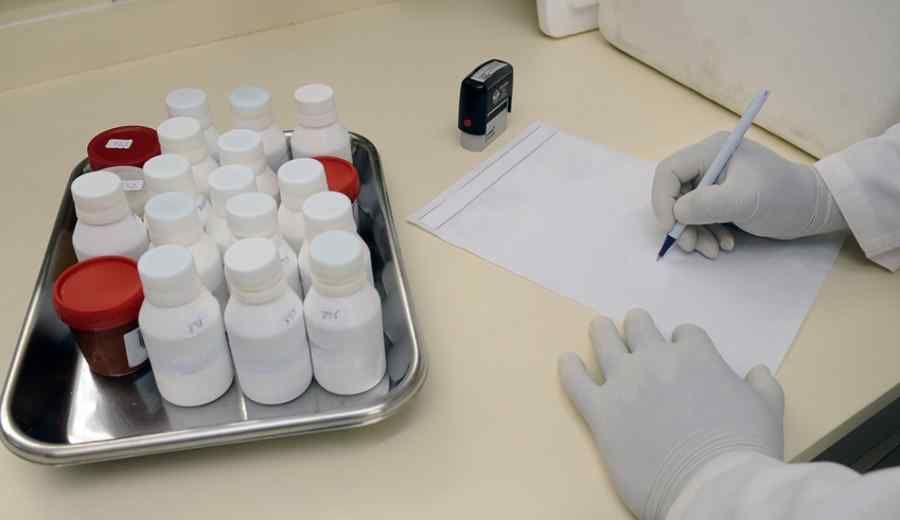
The era of personalized medicine is coming
Password „personalized medicine” is increasingly appearing in media reports, becoming one of the topics of the In, about which rs discussing over coffee with a colleague. Meanwhile, in many cases, the information provided is incomplete, which can lead to a misunderstanding of the meaning of the term.
– The longer we work with patients, the more we realize that no two ch same cases. Any disease, even the same disease, in the compilation of other symptoms in the current patient, runs a slightly different – m ered at a November scientific conference „Preventive cardiology” dr hab. Adam Fronczak, head of the Department of Public Health at the Medical University of Warsaw.
Personalized medicine is thus based on matching how in treatment to each patient, so that the therapy is effective. Develop j personalized medicine would not be possible without intensive development of diagnostics.
Without genetic testing, not a move
– The dynamics of development of our knowledge is enormous. Back in the 1950s. i 60. In the 1970s, the first observations related to smoking m have seen that it is associated with a higher incidence of lung cancer. When I graduated from college it was m It was known about 4 of its types, and today we know 60 types of. Some re of them are rare diseases. And they are treated differently – m The study was carried out by Dr. Habil. Fronczak.
An important element of diagnostics, associated with personalization of medicine, is genetic testing. Without them, patients cannot be qualified in to specific therapies, because some re drugs only work on specific cancers, resulting from the presence of such and not other variants in the gen. Hence, another name for personalized medicine is precision medicine.
It relies on a thorough knowledge of the molecular basis of the formation of chor b, which allows the use of targeted therapy, aimed at blocking the key mechanism of development of a given disease.
– Once in chronic myelogenous leukemia, a patient’s 5-year survival rate in was 30 – 40 percent. In this disease, the basis is a gene mutation, in kt the fusion of the BCR gene with the ABL oncogene occurs. This BCR/ABL fusion gene is responsible for the production of an abnormal protein, which re constantly stimulates white cells blood vessels to grow. Thanks to the use of drugs in blocking this protein patient survival rates in increased to more than 90 percent of. – m The study was presented by Dr. hab. Fronczak.
We should add that in many cases, the mere fact of having a faulty gene does not determine the occurrence of the disease. It can develop only under the influence of specific conditions in, e.g. environmental (pollution, stress, etc.).
In personalized medicine As important as matching therapy to a specific disease is its prevention. At present, we know about 20 markers In the predictive and prognostic factors associated with the diagnosis of cancer in which re have been accepted by the European Society for Medical Oncology. They include lung, stomach, breast, colorectal and prostate cancers. They are so well documented that they can be introduced into the clinical practice (and diagnosis) of.
But this is only the beginning of this type of analysis. From current estimates results that in the future one in three Poles will develop cancer. In one in four cases of cancer will have a genetic basis. Fortunately, numerous DNA testing programs already exist to quickly and reliably assess the risk of developing m.in. for breast cancer, prostate cancer and many other cancers in hereditary.
It is not worth putting off diagnosis for p Source
Doctors agree – cancer can be cured if we find out about it early enough.
Unfortunately, malignant variants of cancer are increasingly affecting young people (before the age of 35) – is already about 5 percent. of all cases in the incidence of. The disease develops much faster in them, runs very rapidly and aggressively. So in this case, prevention is particular lnie important.
Personalized medicine is the inevitable future for virtually all diseases b. One of the famous Polish physicians of the 20th century, psychiatrist and philosopher Antoni Kępiński (1918-72) once stated: Medicine will always remain an art, because doctors will have to deal with the individual, withr The incidence of lung, stomach, colorectal and prostate cancer will have a genetic basis, not from uog lionized model. It is hard not to admit that he is right.

